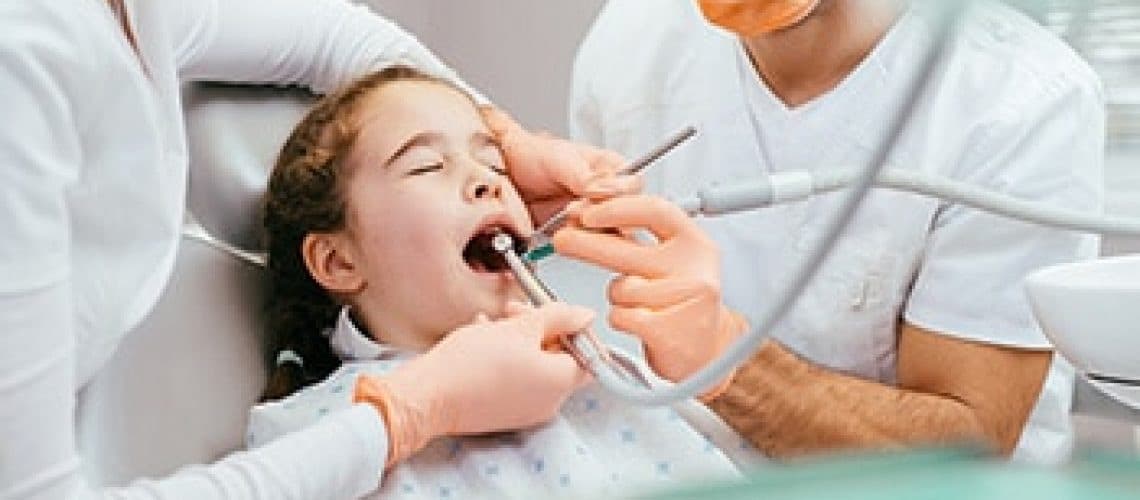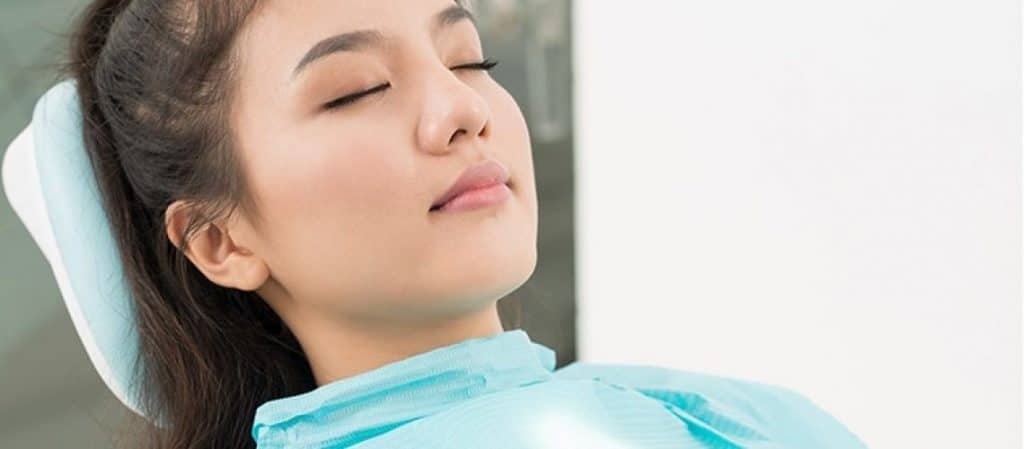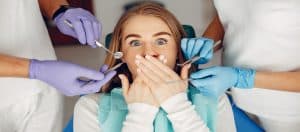Sleep Dentistry: Relax in the Dental Chair
We know lots of people feel a bit nervous when they visit us, even when their dental health is perfectly fine, and they have regular dental checkups and cleanings. For some, the mere thought of visiting a dentist is overwhelming, and they will avoid professional dental care at all costs until they are in severe pain and discomfort and can bear it no longer. It’s a common problem as approximately one in six adults, and one in 10 children in Australia are affected by dental fear. Deep-seated fears or dental phobia, and where a lack of dental care can significantly affect a person’s quality of life impacts around 5% of the Australian population, which is a considerable number of people.
What Happens When You Delay Dental Care or Avoid It Entirely?
When you delay dental care or avoid it entirely, it can cause extensive problems for your dental health. When you see a dentist regularly, it’s far more likely any small problems are detected at a stage when they are easy and quick to treat. Otherwise, these problems will continue to worsen so that eventually the required treatment is lengthier, costlier and more invasive. Unfortunately, we know this can make it worse for people who have deep-seated dental fears and phobias to seek expert dental care.
Many dental practices offer mild sedation such as nitrous oxide which is better known as happy gas, or oral sedatives where you take a pill shortly before your appointment. These sedatives can be extremely useful for anyone who feels slightly anxious about dental treatment, but they may be insufficient for anyone with more deep-seated anxieties. If you recognise these feelings, sleep dentistry could be the solution.
How Could Sleep Dentistry Help?
Sleep dentistry offers a deeper level of sedation and is a solution that has helped many nervous people to comfortably receive the professional dental care they need to restore an optimal level of oral health. It is an option that offers a pain-free solution and is extremely useful for anyone who needs lengthy or complicated treatment like dental implants to restore dental health. But you don’t need to have complex treatment to benefit, as it can help people who feel too nervous about having a straightforward hygiene appointment.
If it has been a while since you visited the dentist, sleep dentistry could help you. It is a treatment that could make all the difference to your ability to eat properly and which can restore your smile. The ability to eat comfortably is enormously important for general health, as when your teeth are failing and painful, it’s easier to pick foods that require minimal chewing, but which are often lacking in nutrition. When your bite is restored, you will be able to choose more nourishing foods, so your body can more easily fight infection and disease. Restoring your oral health could protect your overall health.
Sleep Dentistry Can Help Other People Too
Although sleep dentistry is an excellent solution for anyone nervous or anxious during dental treatment, it can help other people too. If you find dental treatment is extremely uncomfortable because of a strong gag reflex, sleep dentistry could be useful because it relaxes the muscles that cause the gag response. Sleep dentistry can be beneficial when treating nervous or anxious children who are already in pain. It is a good option for treating those with special needs and who may feel very nervous when in unfamiliar surroundings.
Two options could help you and which are intravenous dentistry, or general anaesthesia.
Intravenous Dentistry
Intravenous (IV) dentistry is a form of sedation that will deeply relax you, and the sedative is administered intravenously, often through a vein in your hand. Once administered, it takes effect very quickly. IV dentistry is sometimes called conscious sedation as although you will still be aware of your surroundings and able to talk to the dental team, you will feel much more comfortable, and you may even fall asleep. Usually, the sedatives used in IV dentistry have an amnesiac affect, which is lovely for anyone who feels nervous. Once the sedative has worn off, you will most likely remember very little or possibly nothing at all about your treatment, but your oral health will have improved. Also, it could seem as if only a short time has passed when you may have just completed quite a long appointment. This is advantageous because we can complete far more dental work during a single visit, restoring your oral health more quickly and comfortably.
Can Anyone Have Intravenous Sedation?
You do need to have reasonable health to receive intravenous sedation safely, and we will discuss your medical health with you beforehand. It’s important to make sure we know about any existing medical conditions, and that we have a list of prescription and non-prescription medications. While we want to make sure you enjoy an optimal level of oral health, your safety is always our main concern. Some people may experience adverse effects during IV sedation and especially older people who may have existing health conditions. If this applies to you, we might still be able to use IV sedation, but we may give you a slightly smaller amount of sedative to reduce the risk of side effects. During your appointment, we will make sure you are monitored continuously and afterwards we will need you to stay with us a while until we are sure you can go home safely with a friend or relative.

Preparing for IV Sedation
You won’t be able to eat or drink anything for a few hours before your visit, but we can tell you exactly when you can have your last meal or drink based on your appointment time. If you take any medications, we might advise you to stop taking some of them before your treatment. You do not need to worry about preparing for IV sedation as we will give you precise instructions beforehand.
What to Expect When You Have IV Sedation?
IV sedation aims to make sure you feel relaxed and comfortable while receiving treatment. A qualified and experienced anaesthetist administers your sedation and they will be with you and continually monitoring you for the entire appointment. The sedative will take effect very soon once administered and is given throughout during your treatment. Once it does take effect, you will still be aware of your surroundings and will be awake and able to respond to our dental team if necessary. However, it’s not unusual for people to feel so relaxed that they fall asleep, even though we can awaken them quite easily if needed. If you need a local anaesthetic, it is given once you are sedated to make sure you feel entirely comfortable. We stop administering the sedative once your dental work is completed, and as you come around, you may feel a bit woozy. Before you leave our dental practice, we will talk to you about the treatment you have received and will go over any instructions on how to look after your mouth at home. Don’t worry if you have questions later, as you can always contact us.
Receiving General Anaesthetic for Dental Treatment
A general anaesthetic may be recommended for people who need extensive dental work, and which is lengthy or complex. It is useful for adults and children who have severe dental phobias and fears, or for those who do not become fully numb using a local anaesthetic. General anaesthesia can also be helpful for people who are unable to sit still during dental treatment.
What Is a General Dental Anaesthetic?
When you receive a general dental anaesthetic, you will be unconscious or asleep during the entire treatment. The anaesthesia takes effect very quickly, and because you are unconscious, you will not feel a thing during treatment. We will not be able to wake you until you come around from the anaesthesia, and you won’t remember anything about your treatment. Because you are unconscious, your dentist will be able to complete a larger amount of work without you feeling discomfort, fear or anxiety.
Who Can Have a General Dental Anaesthetic?
Anyone who needs or who wishes to have a general dental anaesthetic must be evaluated very carefully because general anaesthesia does carry a small level of risk. We can discuss the possible benefits and risks of general anaesthesia during your initial evaluation. If you wish to proceed, we will need to review your medical history extensively. If you have any health issues that could affect this treatment, we might need to liaise with other doctors caring for you.
Getting Ready for a General Dental Anaesthetic
If you have had a general anaesthetic before, you will know you need to stop eating and drinking for a specific amount of time beforehand and which is normally seven or eight hours. If you smoke, it’s best to stop at least a day before, and we prefer all our patients to quit smoking while healing after oral surgery. This is because smoking slows down your body’s ability to heal and could negatively affect any treatment given. When we review your medications, we can tell you if you need to stop taking any before surgery, and if you need to bring any medicines to the appointment.
What to Expect at Your Appointment?
Before we begin, we can review the procedure with you again and answer any last-minute questions. We want to make sure you feel entirely comfortable before you receive the general anaesthesia. The anaesthetic is given by a qualified and experienced anaesthetist and who we fully trust to take good care of you. During your treatment, the anaesthetist will be with you the entire time for your comfort and safety and will monitor vital signs that include your breathing, heart rate and blood pressure. When the work is complete, you will be taken to a comfortable recovery room until you awaken, and we might administer oxygen because this helps your body to get rid of the anaesthesia more quickly. As with any general anaesthetic, you will need to stay with us for a while after treatment until we are sure you can go home safely. Before you leave, we will talk to you about how to care for your mouth at home. If we have prescribed medication, we will go through when to take it.
You must have someone to take you home and to stay with you overnight. Be aware that you mustn’t drive or operate machinery, make any important decisions or sign legal documents for the first 24 hours afterwards. If you have any questions once you get home, give us a call, and we’ll be happy to help you.
How Sleep Dentistry Can Help People Overcome Dental Fears and Phobias
Sleep dentistry is a very useful tool to help restore oral health in a way that is comfortable and often quicker than would ordinarily be possible. Because dental visits are less stressful, sleep dentistry may help you conquer dental fears and phobias more easily.
We are aware it takes courage to face dental fears and phobias, but we hope that once you have good dental health, you will find it easier to maintain long-term. Our experienced and caring dental team can help ensure that you are using the best techniques for brushing and flossing your teeth and the right tools to care for your mouth. Knowing that you are correctly looking after your mouth can be enormously reassuring when it comes to dental appointments. Often, all that is needed are regular dental checkups and hygiene appointments to maintain optimal oral health. If you need any further restorative treatment, it’s more likely to be less invasive and quicker, but of course, we can always provide sedation dentistry if needed. Having positive experiences in the dental chair can often help people to cope more effectively with fears and phobias.
Let Us Help You
If you are struggling to overcome dental anxiety in any form, we are here to help you. When you first contact us, let us know how you feel so we can talk to you about the best way to proceed, using sleep dentistry if appropriate. We can provide a tailor-made treatment plan ensuring you receive your dental treatment in a way and at a pace acceptable for you.










